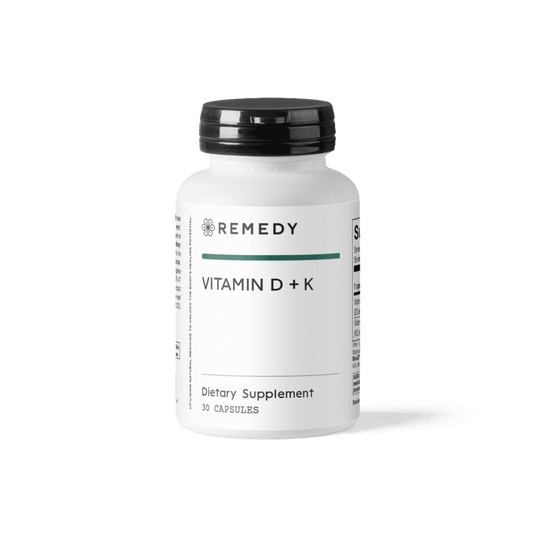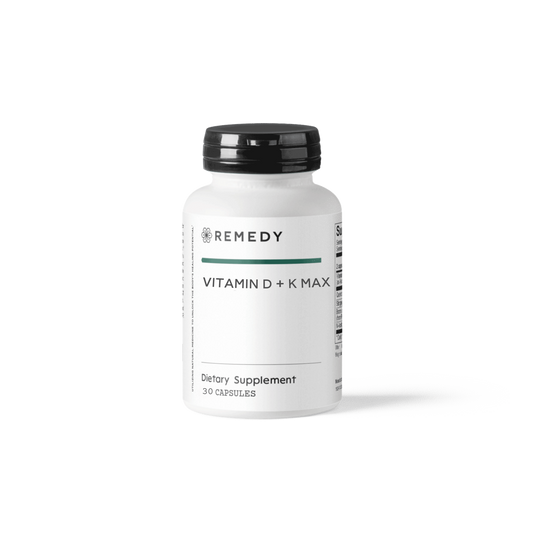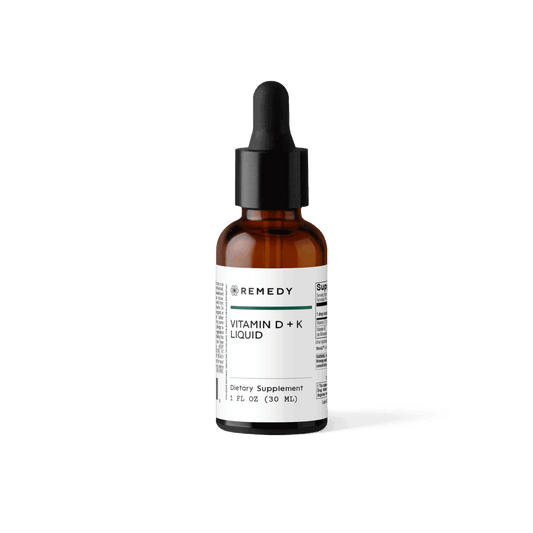
Top 5 Health Benefits of Vitamin D
Share
Vitamin D is a crucial nutrient that plays a vital role in the body's overall health and well-being. In addition to its well-known function in supporting bone health, vitamin D can also function more like a hormone, influencing various physiological processes.
Vitamin D Deficiency
Studies have shown that a significant portion of the American population is deficient in vitamin D. In fact, it is estimated that over 40% of adults in the United States are deficient in Vitamin D. I aim to suggest that this is underrepresented as common labs consider levels of 30 ng/mL sufficient while functional medicine practitioners consider the optimal Vitamin D value to be 50–100 ng/mL with aim to be right around 75 ng/mL for most people. This deficiency is more common in certain demographics, such as older adults, people with darker skin, and those who live in northern latitudes.
The consequences of vitamin D deficiency can be serious. This nutrient plays a key role in bone health, immune function, and overall well-being. A lack of vitamin D has been linked to an increased risk of osteoporosis, heart disease, diabetes, and certain types of cancer. In children, vitamin D deficiency can lead to rickets, a condition characterized by weak and deformed bones.
Health Benefits of Vitamin D
Now that we have established the problem of Vitamin D deficiency in America as well as the negative implications of not having adequete levels in our bodies, lets shift our focus to the top 5 health benefits of vitamin d and how to ensure your levels are optimal.
1. Immune System Support
Research has shown that vitamin D plays a key role in supporting the immune system. It helps regulate the immune response, reducing inflammation and promoting immune cell function. Adequate levels of vitamin D have been linked to a lower risk of infections and autoimmune diseases.
2. Mood Regulation
Vitamin D has been associated with mood regulation and mental health. Studies have found a link between low levels of vitamin D and an increased risk of depression, anxiety, and other mood disorders. Vitamin D can help regulate neurotransmitters in the brain that affect mood.
3. Cardiovascular Health
Research suggests that vitamin D may play a role in maintaining cardiovascular health. It has been linked to a lower risk of heart disease, high blood pressure, and stroke. Vitamin D helps regulate blood pressure, reduce inflammation, and improve overall heart function.
4. Muscle Function
Vitamin D is essential for maintaining healthy muscles. As a hormone, vitamin D helps regulate muscle contraction, strength, and balance. Adequate levels of vitamin D can help prevent muscle weakness, pain, and cramps, especially in older adults.
5. Brain Health
Studies have shown that vitamin D may have a protective effect on brain health. Vitamin D receptors are found throughout the brain, indicating its importance in cognitive function and neuroprotection. Vitamin D can support brain health and reduce the risk of neurodegenerative diseases.
How can I boost my Vitamin D level?
Although many people can assume they are low in vitamin D, I suggest asking your doctor to order a Vitamin D level for you. Remember - optimal levels of Vitamin D are between 50-100 ng/mL. If you don’t have a primary care provider or just want to take matters into your own hand, check out Remedy Lab Shop to browse tests shipped directly to you.
Increasing sun exposure, consuming vitamin D-rich foods such as mushrooms, fatty fish and fortified dairy products, and taking supplements are all effective ways to boost vitamin D levels.
Sun exposure isn’t always possible for people with sensitive skin or risk of skin cancer making supplementation an excellent choice to ensure optimal Vitamin D levels. I typically recommend most people start at 5,000 IU daily, however, some people with extremely low levels or conditions that impair absorption of Vitamin D (i.e. obesity, gastrointestinal disorders, increased age, history of gallbladder removal), I recommend starting at 10,000 IU daily. Recheck levels in 3 months.
In conclusion, vitamin D's role in the goes beyond just bone health. Its impact on the immune system, mood regulation, cardiovascular health, muscle function, and brain health highlights its importance in overall well-being. Ensuring adequate levels of vitamin D through sunlight exposure, diet, and supplements can help optimize these health benefits.








